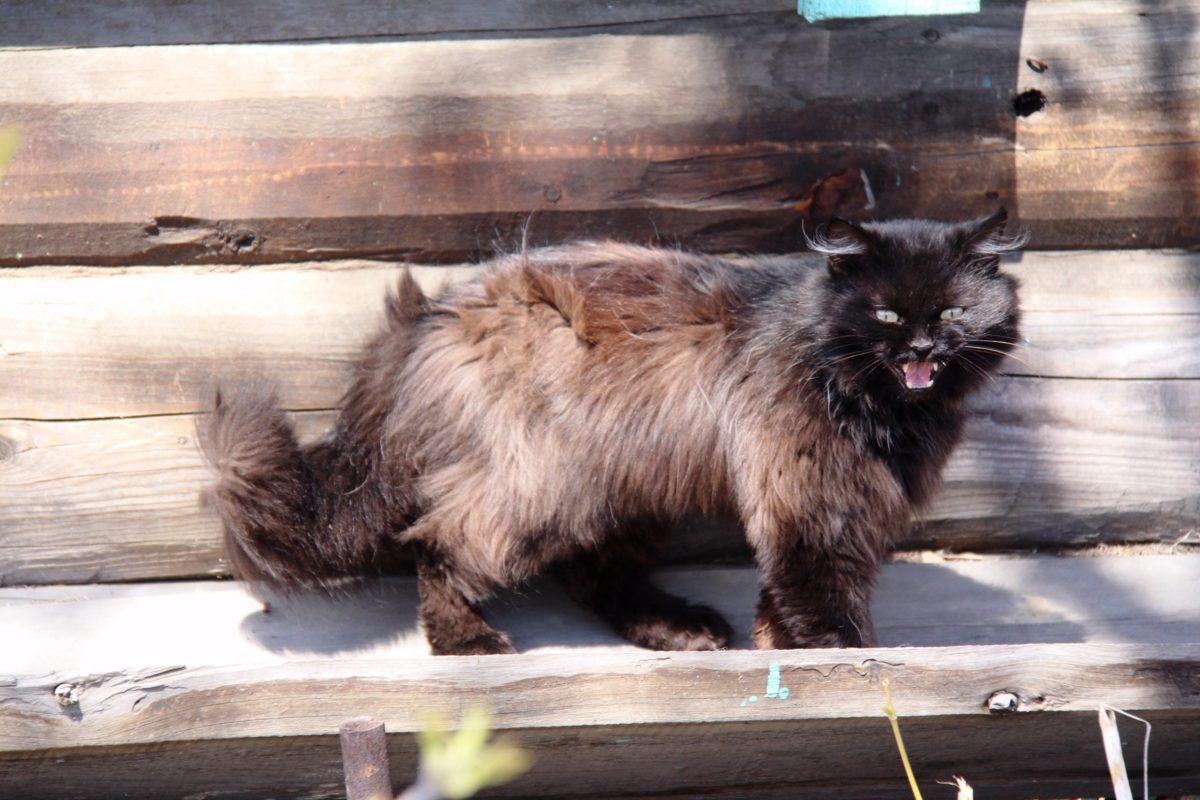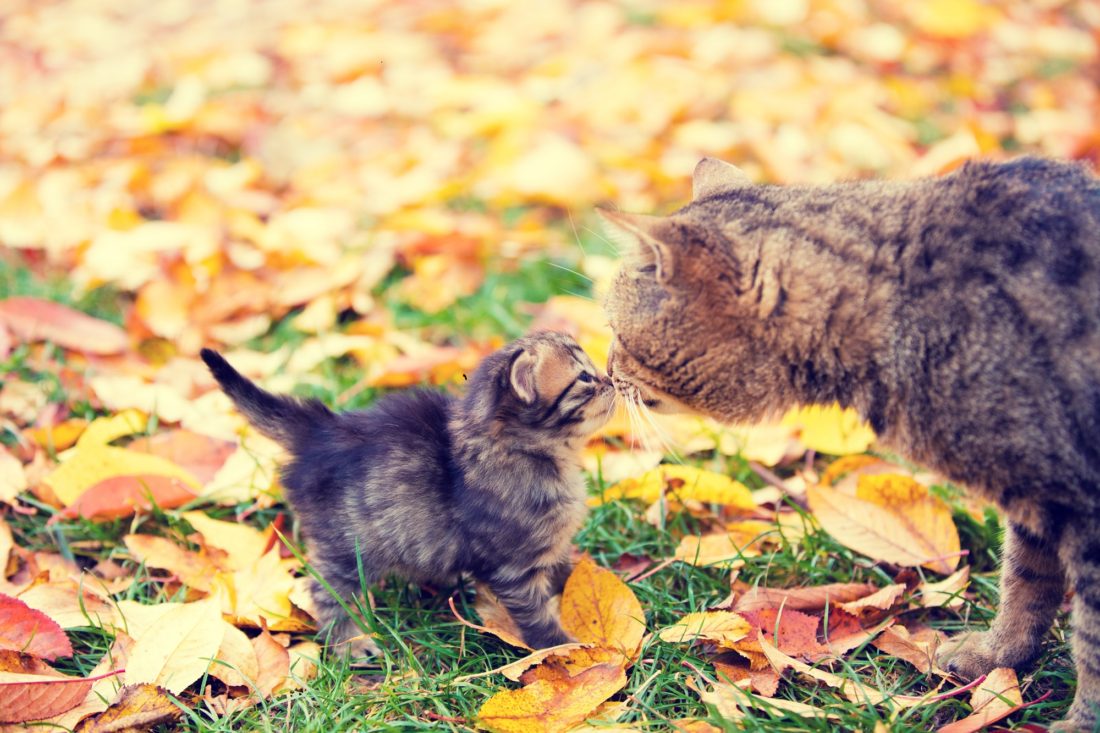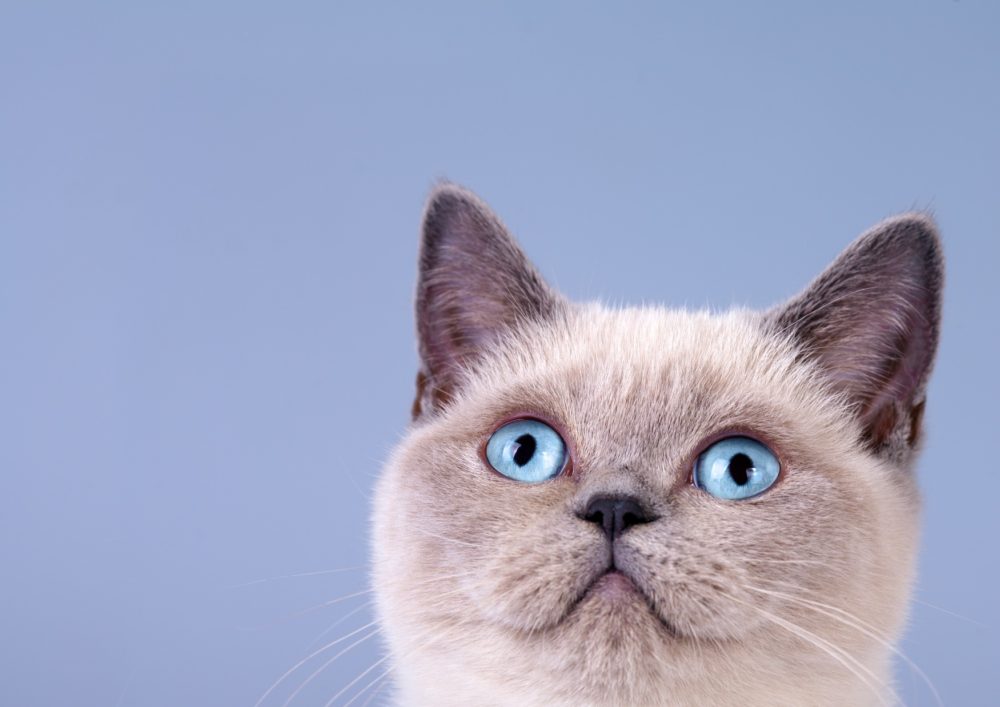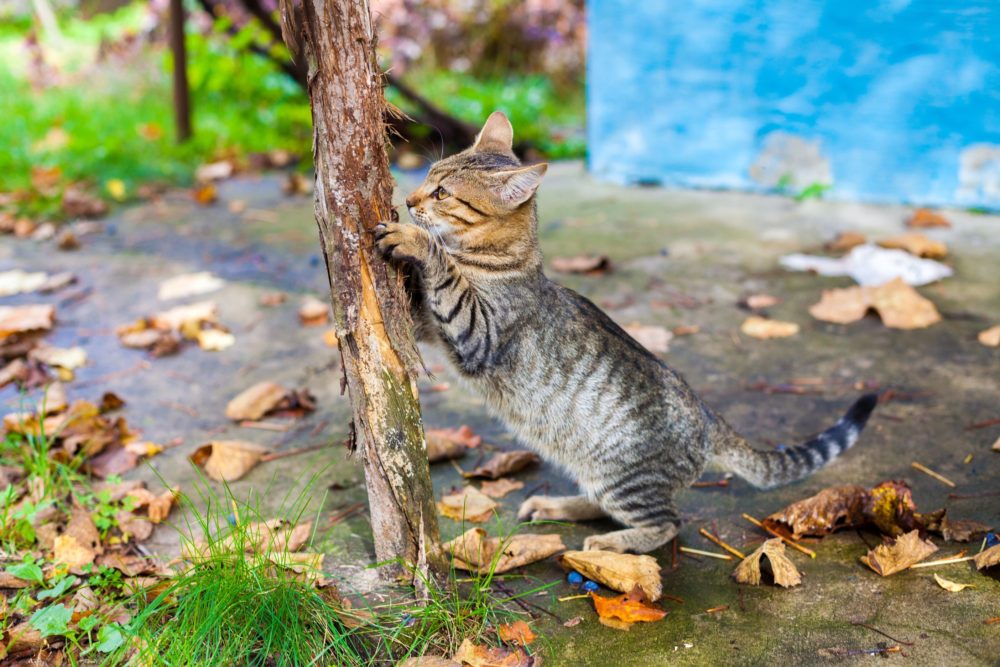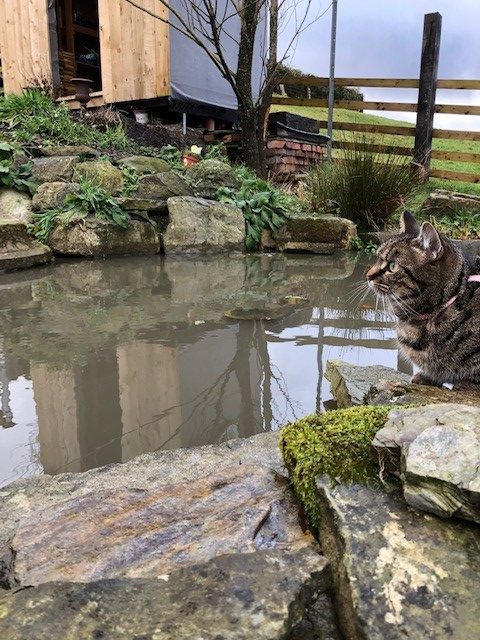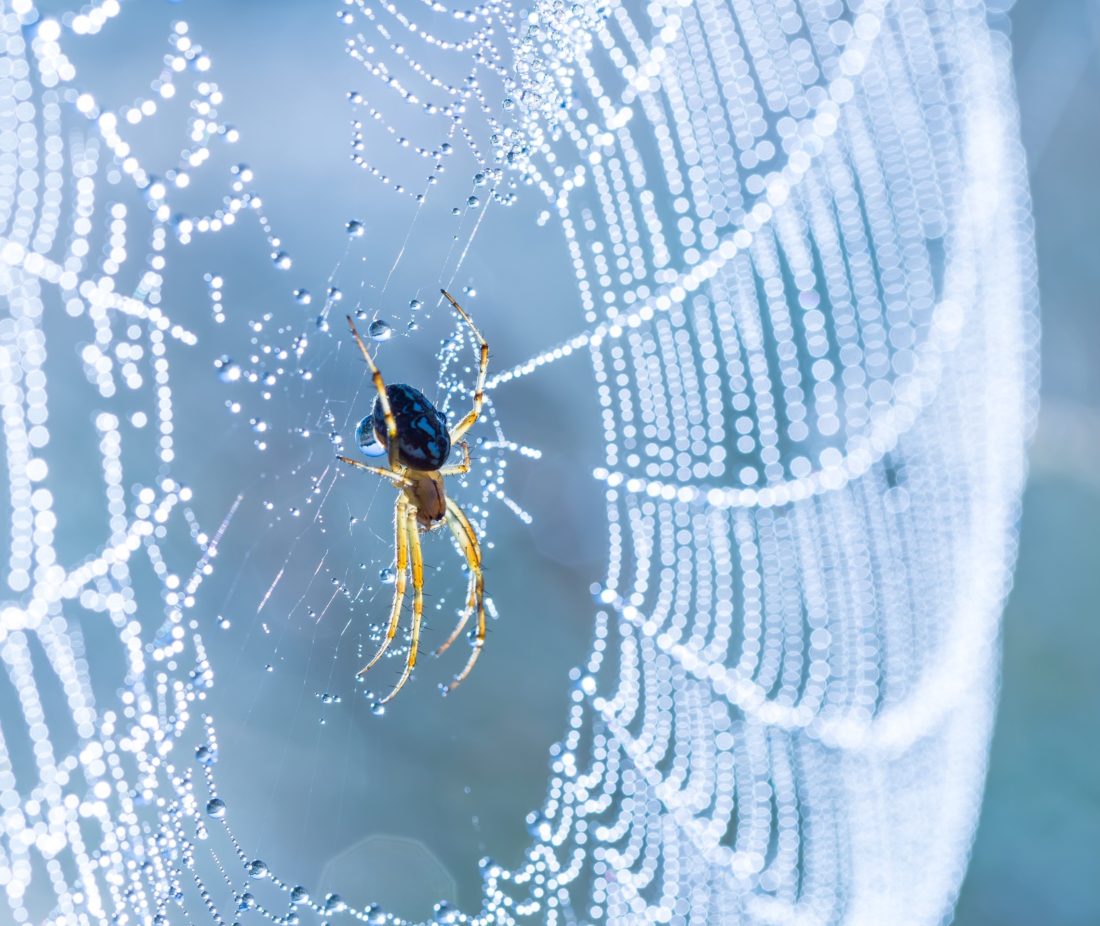
Why does my cat eat spider webs/cobwebs? Why does my cat eat spiders?
Although our cats have been a part of our family for many years now, we continually enjoy learning about our feline friends. A key part of this has been to join several cat forums and learning from others. One topic that keeps coming up is that cat owners are concerned about their cats eating or licking spider webs and eating spiders! We have certainly noticed our youngest cat going crazy in the catio chasing various moving insects such as flies, butterflies and moths! It is quite probable that the odd spider has been chased and maybe eaten too. What is behind this fascination with eating spiders and their webs?
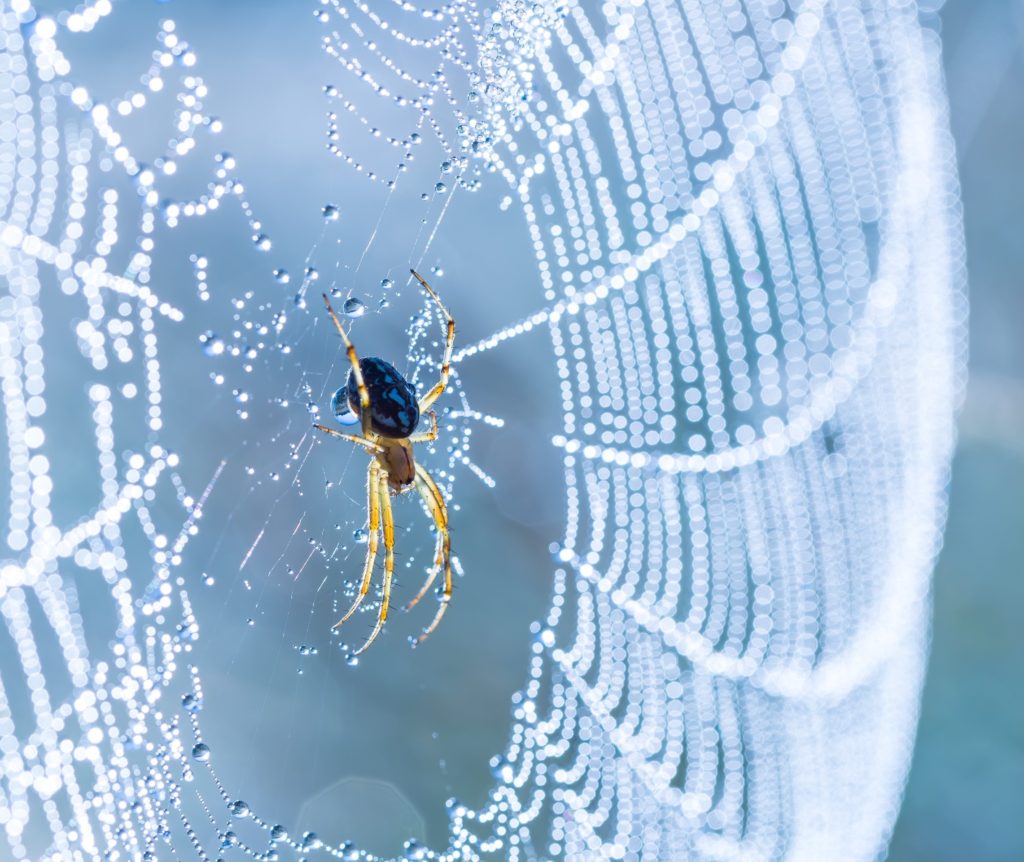
Why does my cat eat spider webs?
There are a few reasons as to why you may find your cat licking or eating spider web:
- These fine intricate webs are a source of protein, carbohydrates and nucleic acids. The silky webs are constructed from chains of amino acids – a simple protein. They will not cause any harm to your cat. Your cat is probably just enjoying the little extra protein boost.
- There is also an eating condition exists called ‘pica’. This is where your cat will crave, and eat, non food stuff. Pica is not a cat specific disorder, it can affect animals and humans too. It is connected to a deficiency in certain nutrients. If you suspect that your cat is suffering form this disorder, please contact your veterinary for advice and check-up.
- It may be that your cat has walked into a web or got covered in the tacky cobweb whilst trying to catch a spider, and your cat is simply trying to clean herself up.
Licking or eating spiders web is very unlikely to cause any harm to your cat. They are probably simply enjoying the new taste and texture sensation.
If you have any concerns regarding your cat’s eating habits, please do not hesitate to contact your veterinary for advice.
Why does my cat eat spiders?
As a general rule, a cat won’t come to any harm by eating a spider. Of course, if you suspect your cat has eaten, or been bitten by, a venomous spider, or is showing any symptoms of having been poisoned, please contact your veterinary. (Check out our article ‘Has my cat been poisoned – Symptoms, Causes, Treatments’ for further information.)
It is likely that your cat has been teasing the spider, as if it were a prey. Before cats were domesticated about 10,000 years ago, cats would have to hunt for their food in order to survive. Although today’s house cats know that their next meal is only a few hours away, the urge to hunt still exists. Anything that moves can catch their attention, even a little spider. A cat will play with its prey, using its paw to encourage it to move, teasing it, until it moves again. The end of the hunt usually ends in a successful kill. And whilst the cat may be too full from her last meal to eat a caught mouse or bird, a spider will barely be a mouthful.
Cats are obligate carnivores. This means that they need to eat meat in order to survive. Meat contains taurine, which is essential to cats. Taurine is only found in animal tissue. Spiders are very high in taurine content, and it may possibly be the case that cats can taste or smell this compound on which their lives depend. Domesticated cats will have their nutritional requirements met from commercial cat food but it certainly may be the case for feral or wild cats.
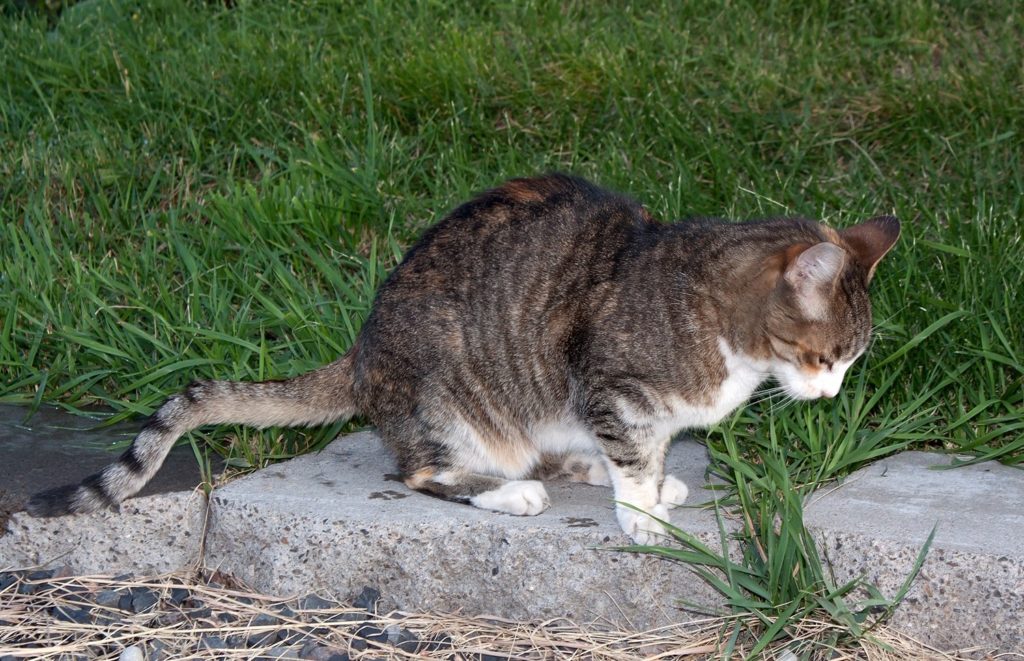
Can I stop my cat eating spiders?
If your cat is one of these kitties that simply love to hunt, kill and eat spiders, it may prove quite challenging to stop them. Removing the spider after your cat has caught or killed the spider is certainly one way to stop them eating the caught spider – if you can get to it quick enough. Another option is to ensure that your cat has ample stimulation to satisfy their hunting needs. Plenty of play time, use of activity feeders and enough exercise can all help. For lots of ideas for games to play with your cat check out our article ‘18 games to play with your cat’.
Activity feeders are great for keeping your cat mentally stimulated and satisfying some of the hunting instincts by having to work for their food or treats. An activity feeder can be as simple as this home made one made out of cardboard tubes;
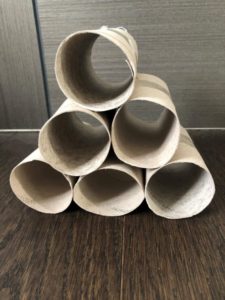
Or there are plenty of more complex activity feeders available on the market. This one by Trixie cat is definitely one of our favorites.

 Other bugs and insects that cats may chase and eat
Other bugs and insects that cats may chase and eat
As we’ve already established, cats have a very strong inbuilt instinct to hunt and so anything that moves ,flies or flits from place to place is at the mercy of a hunting cat. Therefore here is a quick guide to some other bugs and insects that your cat may chase.
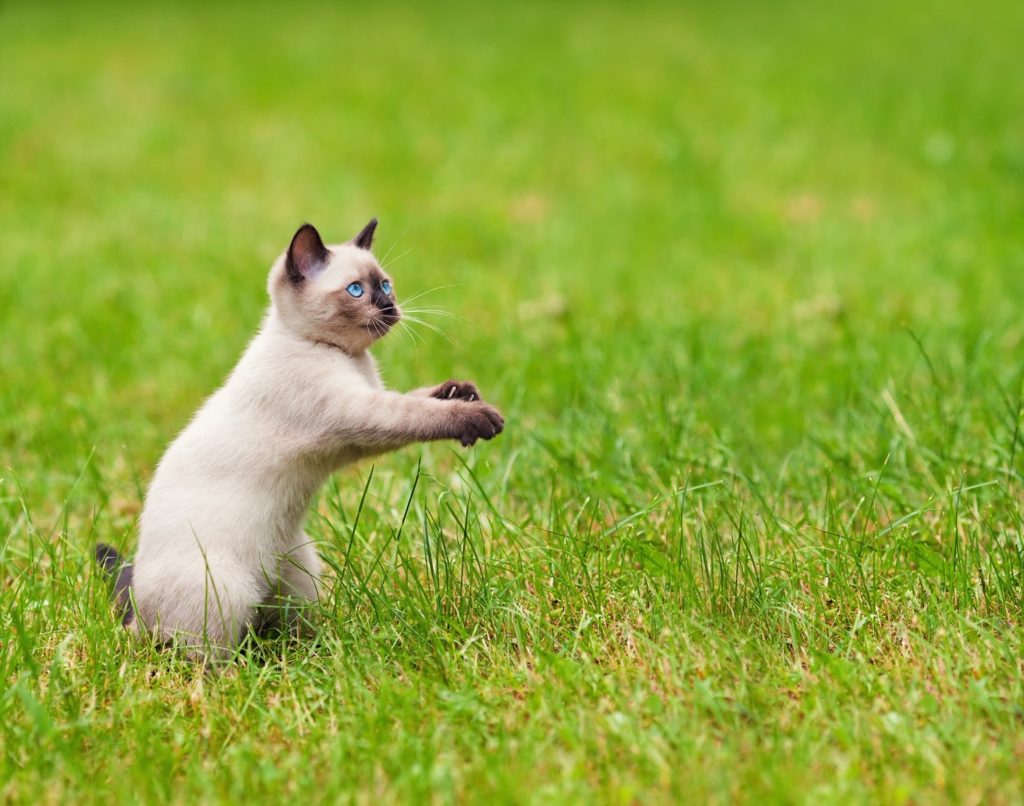
Bees and wasps
Many cats love to chase bees and wasps. So much so that we have dedicated a whole article to this topic. Find it here: ‘My cat is chasing bees. Should I be worried?‘. The main concern is obviosuly that your cat may be stung. This can be painful. Very often, a cat can get stung on its paw whilst trying to catch the insect or on their faces by becoming too close to the bee. This is not usually too serious. However, there are occasions when a a bee or wasp sting can become an emergency situation. These include:
- If a cat is stung inside its mouth, nose or neck then emergency veterinary attention is required. The sting can cause swelling which could block the airways.
- If your cat has have an allergic reaction to the bee sting. Unfortunately, there is no way of knowing this until it happens. If this is the case, then contact your veterinary immediately.
- Multiple stings can also be life threatening to your cat, and again, immediate veterinary care is required.
Moths and butterflies
We mentioned at the beginning of this article how fond of chasing moths our cats are! As dusk falls, they love entering the catio, and once the moths start flying about, both cats dart around like two crazy cats trying to catch them. They have probably been successful in catching them on a few occasions. We cannot be sure if the moths have been eaten or not… But most moths and caterpillars pose no danger to cats if they are eaten.
Ants
These quick moving tiny creatures are often found together in numerous numbers – being very busy going to and fro their nest. Black ants are harmless to cats, they may be quick to give your cat a little bite but this will not be dangerous. Fire ants can be very dangerous. Their bite can cause a nasty reaction in cats and it is advisable to seek veterinary care if this happens.
Hard bodied insects
This includes beetles, grasshoppers, crickets and roaches. These do not pose a danger to cats but if their exoskeletons are consumed then this can cause irritation to the mouth and tummy upset.
______________________________________________________________________________________________________________________________________
Other articles you may find of interest:
Are ponds safe for cats? Can cats drink pond water?
What to do when your cat brings home a dead mouse or bird?
Do cats keep rats away? Do cats hunt rats?
